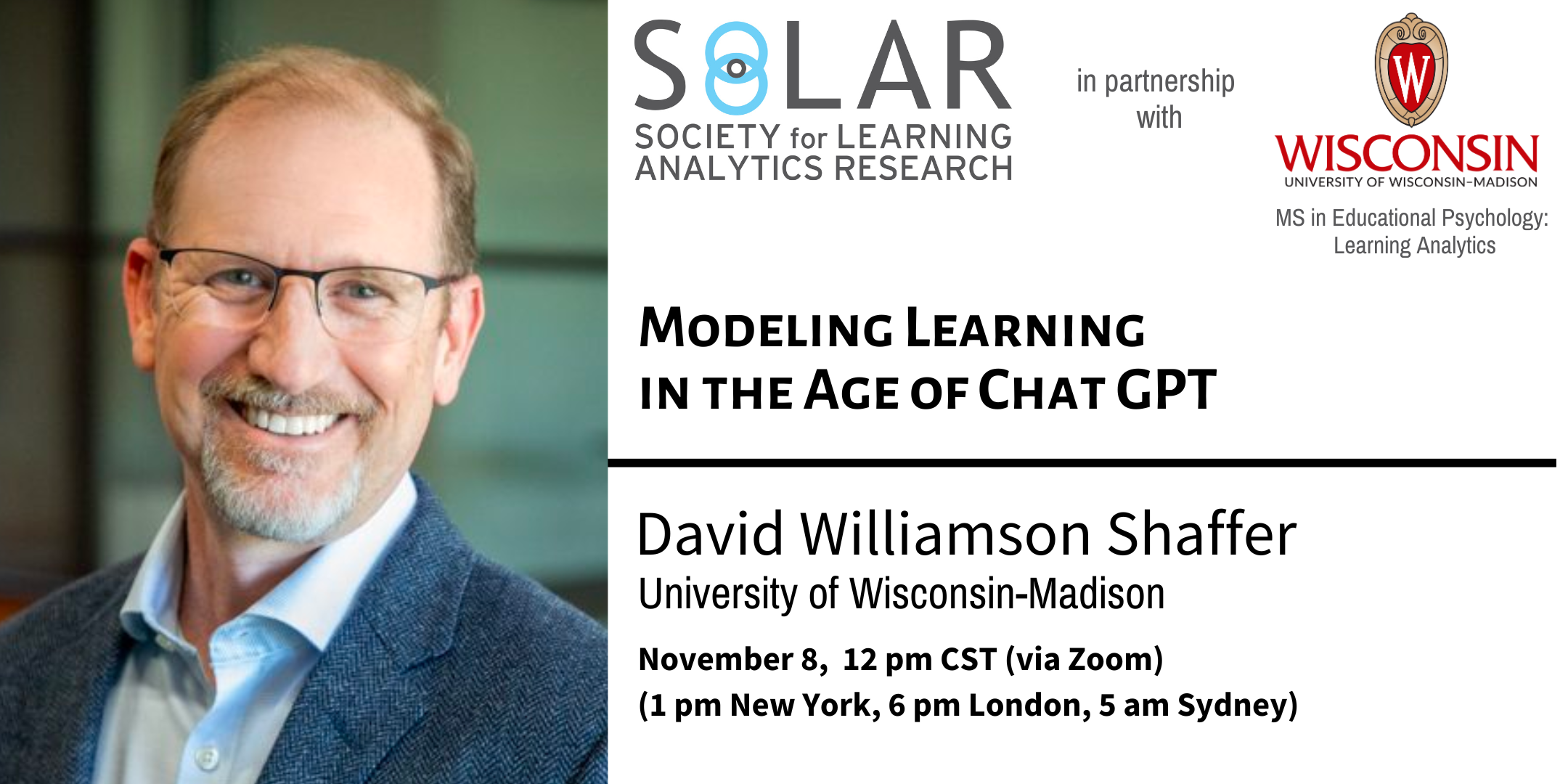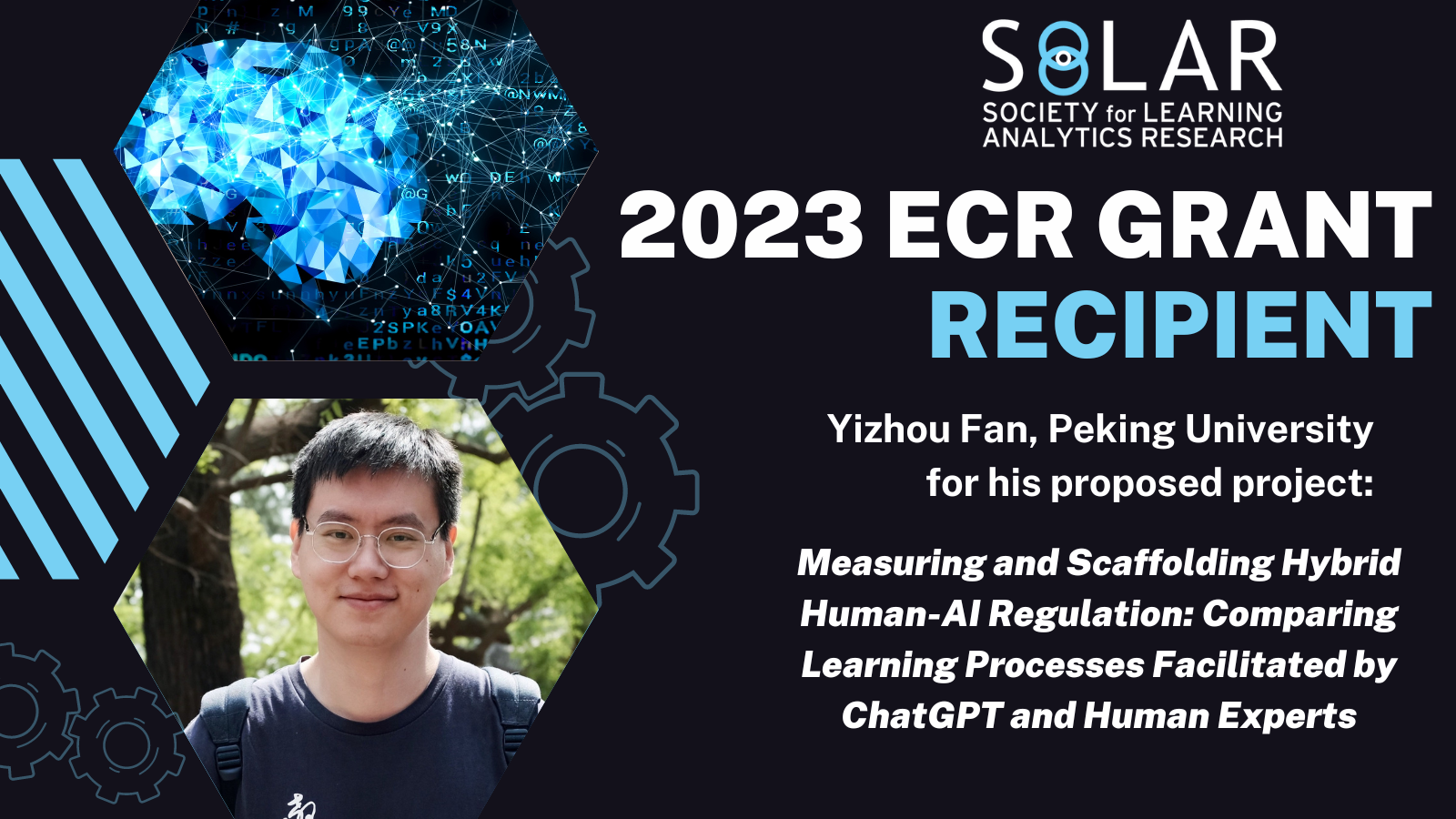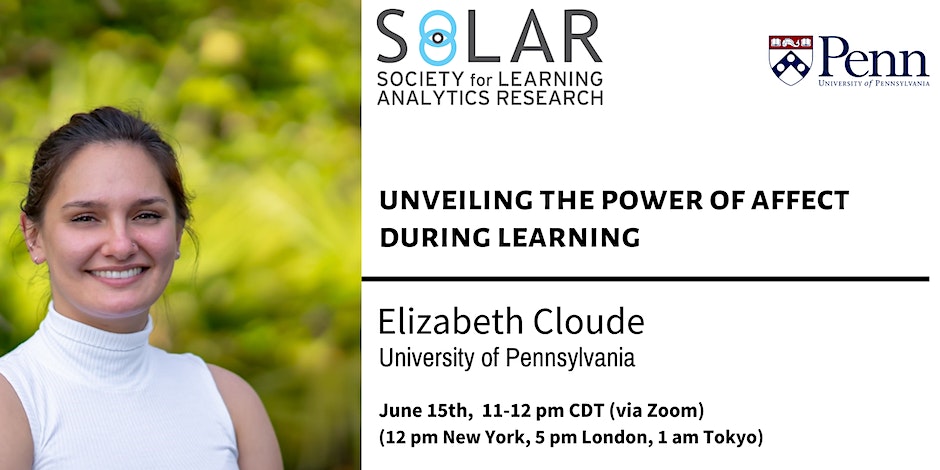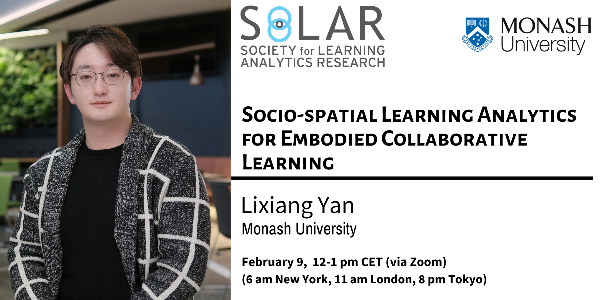November 22, 2023
The SoLAR Executive Committee is pleased to announce the call for nominations for the 2024-2025 Executive Committee. Executive Committee members serve a two year term. Nominations are open for four member at-large positions.
If you are interested in shaping and guiding how SoLAR continues to serve the growing learning analytics community please fill out this short google form with the following information by 5:00 pm EST January 17, 2024:
- Name
- Institution
- Short biography (max 200 words)
- Interest in Learning Analytics (Research Area, etc.) & Interest in serving on the SoLAR Executive Committee (max 200 words)
- SoLAR Working Group Interests – Please let the SoLAR community know which areas within our working groups you would be interested in chairing and/or becoming a member. To review the current SoLAR Working Groups, please review: https://www.solaresearch.org/about/governance/solar-working-groups/
- Photo – jpg suitable for web (200×200)
- SoLAR Membership ID number
If you are unable to submit a google form or have any questions, please email solarsocietymgmt@gmail.com.
Only those who have valid 2024 SoLAR memberships are eligible to nominate and vote for Executive Positions. To be considered as a nominee you must be a member of SoLAR by January 17, 2024; to vote in the Executive Committee election you must be a member of SoLAR by February 5, 2024. To renew or join, visit: https://solaresearch.org/membership/
Election Ballots will be sent to all SoLAR Members on January 25, 2024 (EST) and will close on February 8, 2024 (EST).
November 2, 2023
August 7, 2023
June 28, 2023
June 26, 2023
How can online formative assessment be used in predicting students’ final course performance? What are the predictors of final learning outcomes?
June 15, 2023
Aligning assessment with learning outcomes is essential in ensuring the success and effectiveness of online education. How can learning analytics support this constructive alignment?
June 8, 2023
April 28, 2023
The SoLAR ECR Research Grant serves to support promising early career researchers who demonstrate the potential to advance research and practice in learning analytics and increase the educational and socio-economic impacts of learning analytics. Proposed projects should improve our understanding of learning analytics and learning in general, result in positive impacts on education, and align with the topics identified for the current round. It is expected that the ECR grant will help successful applicants develop their career by enabling an initiative that is scalable or has potential to attract further funding.
Applicant eligibility
Applications from individuals based in academic or not-for-profit organizations are welcome, provided the individuals hold valid SoLAR membership when applying and for the term of the project. Applicants need to have been awarded with a PhD qualification no longer than 5 years prior to the application deadline. Each applicant may only submit one application, and each application can only have one named applicant. Past awardees or current SoLAR executive committee members are not eligible to apply.
2023 Themes – Enhancing Learning with Learning Analytics in an AI Powered World
With the rapid development of AI technologies, including generative AI such as ChatGPT, the impact on learning and thus understanding how learning takes place is a new evolution for learning analytics. How to measure and scaffold the learning process are important questions confronting learning analytics researchers and practitioners. We welcome proposals of research that explore the impact of AI on learning analytics research and practice. Example topics include, but are not limited to:
- Understand the impact of AI technologies on student learning and teaching;
- Identify innovative AI driven methodologies and tools to gain insights into learning;
- Understand how AI technologies impact different strands of learning analytics research, e.g., personalised feedback, writing analytics research, self-regulated learning, etc.;
- Explore how learning analytics can be used to foster insights into new AI literacies, such as prompt engineering;
- Explore the role of learning analytics in futures literacy;
- Examine how new generational AI impacts learning and assessment, and how learning analytics can help;
- Make sense of the intersections of humans and AI in practices of learning analytics;
- Enhance the use of learning analytics with explainable AI;
- Evaluate the impact of learning analytics on institutional strategy development and monitoring;
- Explore how institutions navigate ethical considerations of AI when adopting learning analytics;
- Explore how to ensure trustworthiness of learning analytics and AI in education in parallel with data protection and informed consent of data owners;
- Understand ways that algorithmic fairness & biases in AI technologies may affect learners.
Level of award
A total of $10,000 CAD is available to fund one to two projects. Funds will be managed directly by SoLAR via approved expense invoices.
Awardee(s) will also receive publicity via SoLAR’s channels to help them connect with the community, complimentary registration for a Learning Analytics Summer Institute (LASI) and the International Learning Analytics and Knowledge Conference (LAK).
For more information and the grant application, please visit: https://www.solaresearch.org/community/scholarships/ecr-research-grant/
Key dates
Application open: 22 March 2023
Submission deadline: 3 May 2023 (5pm EDT)
Results announcement: 30 June 2023
March 6, 2023
The SoLAR Awards Committee is calling for nominations for two new SoLAR awards programs, the Emerging Scholars Award and the Outstanding Community Work Award. People can nominate themselves or others. We are specifically looking for nominations covering different regions of the world, i.e. Australasia, Asia, Africa, Europe, North America, and South America.
Deadline for submissions is March 11, 23:59 AOE.
Decision process:
-
The decision on who will be awarded will be taken by the SoLAR Awards Committee
-
The winners will be announced during LAK23
-
If there aren’t any nominees for one of the geographical regions, no award will be given for that region
-
If there is only one nominee for a geographical region, then this person may not automatically win as the eligibility criteria must be met)
For Emerging Scholars Award:
What do we mean by “emerging scholar”? Here are the eligibility criteria to be nominated for this award:
- Obtained a PhD or equivalent doctoral degree within the past 5 years (or equivalent if there have been career interruptions)
AND
- Emerging noteworthy research leading to significant knowledge and understanding of learning analytics
OR
- Evidence of impact of nominee’s research on learning analytics application, adoption, or professional development
To nominate an Emerging Scholar, please fill out this google form: https://forms.gle/wNp46DLfN4TCPTjM9
For Outstanding Community Work Award:
What do we mean by “outstanding community work”? Below are the eligibility criteria to be nominated for this award (please note that while only 1 is required), select all that apply:
-
Engagement with researchers and/or practitioners to train or disseminate initiatives in the area of learning analytics
Support the dissemination of ideas in the field to multiple stakeholders
-
Engagement as a volunteer in community-based learning or research activities
-
Outreach activities to connect learning analytics with other communities
-
Foster exchange of knowledge around learning analytics with multiple groups
To nominate for the Outstanding Community Work Award, please fill out this google form: https://forms.gle/numzRa4iY7YWLJUa7





